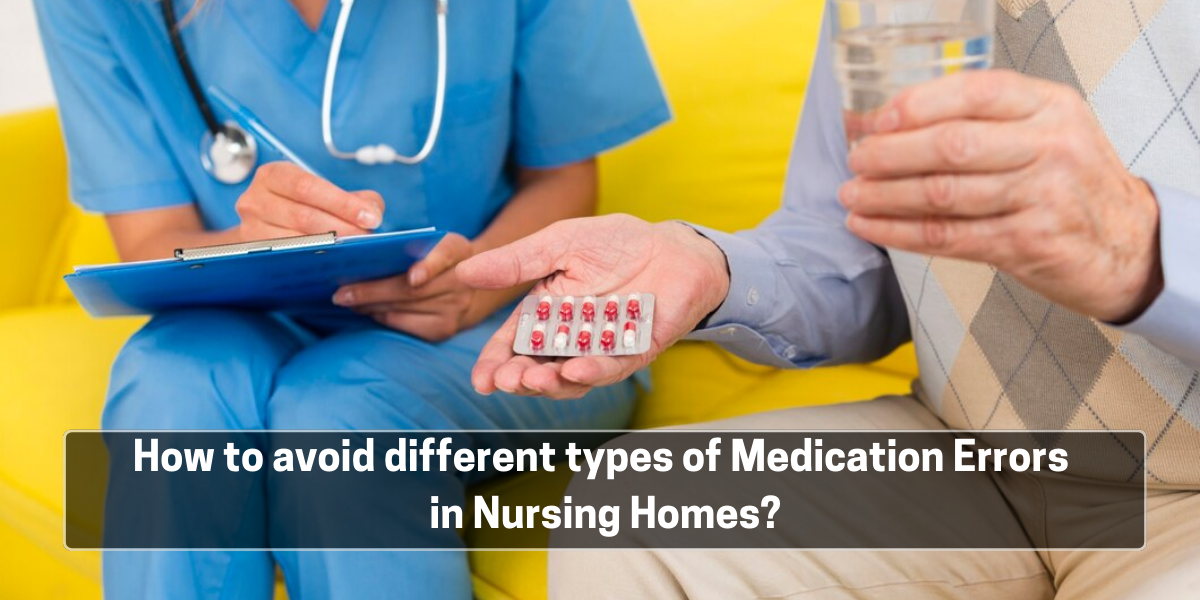Medication errors in nursing homes can have severe consequences for the health and well-being of residents. However, by implementing effective strategies, nursing home managers or supervisors can greatly reduce the risk of these errors. Here, we will explore some of the useful insights to avoid different types of medication errors in nursing homes.
- Transparent and consistent communication is the cornerstone of preventing medication errors. Adopt standardised tools such as electronic health records (EHRs) and medication reconciliation forms. This ensures a smooth flow of information, reducing the chances of misunderstandings.
- A double-check system for prescriptions is the way to go. When another healthcare expert cross-checks medications, dosages, and timings, it becomes easier to spot and rectify potential mistakes.
- Whenever there’s a change in care – be it admission, transfer, or discharge – a detailed medication reconciliation is a must. By cross-referencing current medications with what’s prescribed, discrepancies can be spotted and rectified.
- To steer clear of timing errors, consistent medication schedules are the key. By setting clear guidelines and training staff accordingly, a seamless routine is established. This ensures no dose is ever missed or delayed. Also, using eMAR makes the process smoother and more accurate.
- Robust training programs for nursing home staff is important. Right from medication techniques to error spotting and reporting, everything should be included in the program.
- In care homes that still use paper-based Medication Administration Records (MARs), it’s important to keep the records current. They should be comprehensive, covering all details about the medication. Regular updates ensure that the staff always has the latest information.
- Mistakes are stepping stones to improvement. How to ensure they’re reported? By creating a no-blame culture. When staff knows they won’t be penalised for reporting errors, they’re more likely to come forward. This paves the way for continuous improvement.
- Routine medication reviews with healthcare experts, pharmacists, and primary care providers can help reduce the risk of errors, These reviews can spot potential drug interactions and old medications.
Preventing different types of medication errors in nursing homes requires a holistic approach. From effective communication and standardisation of procedures to continuous learning – it’s essential to combine important elements to ensure the well-being of the residents
eMAR can help reduce various types of medication errors in nursing homes. Traditional paper-based MARs can lead to errors due to illegible handwriting. eMARs provide clear, typed entries, reducing the risk of misinterpretation. ReMAR systems update in real-time, ensuring that all staff members have access to the most current medication information. This reduces the chances of administering outdated or changed medications. Also, eMARs automatically track medication dosages, ensuring that residents receive the correct dose at the right time. It can alert staff if a dose is missed or if there’s a potential overdose. Some eMAR systems can alert staff to potential drug-drug or drug-food interactions, helping to prevent adverse reactions. Many eMAR systems incorporate barcode scanning, ensuring that the right medication is given to the right resident. This reduces the risk of administering the wrong medication. To know more, book an eMAR demo today.







